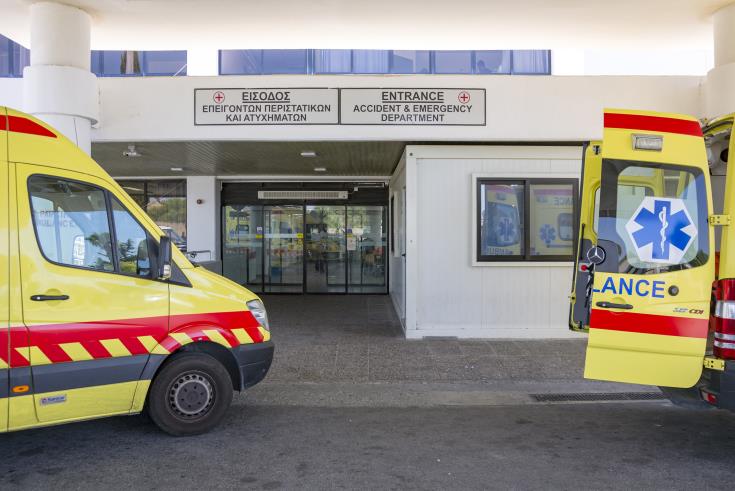Cyprus’ landmark General Healthcare System (GHS) entered the final stretch this week with the introduction of inpatient care as officials heralded the project a success while pledging to keep the system financially viable.
Officials were pleased to see the majority of private hospitals join the GHS, offering patients a broader range of healthcare options.
The Director of the Health Insurance Organisation (HIO) Andreas Papaconstantinou said that the second stage began with large participation from the private sector, reaching almost 100%.
GHS patients will have access to some 85% of the country’s doctors, 75% of hospital beds, almost 100% of the clinical laboratories and pharmacies and more than 20 diagnostic centres.
The HIO official was happy the second phase launch went smoothly with 200 patients being referred to private and public hospitals for treatment just on the first day.
In an interview to ANT1 TV, Papaconstantinou noted that apart from some minor organizational problems, both public and private hospitals were able to cope with the number of patients coming in for treatment.
He said: “Private hospitals signed up along with hospitals under State Health Services Organisation (Okypy) have proven that they will be the pillars of the GHS.”
Papaconstantinou said although it may be too soon to jump to conclusions, private hospitals are expected to see a larger number of patients turning to them for treatment than the public sector.
“If Okypy puts their back into it and is successful in reorganizing public health institutions, then patients will return to the public sector”.
Free access
Currently, hospital treatment covers only operations and childbirth, with the rest of the services going live in September, but Papaconstantinou said patients will not be financially disadvantaged as services are free.
“Operations were a significant financial burden which was disproportionate, putting a strain on household budgets in the past.
Now, with the General Healthcare System, these services will be offered free of charge.”
Papaconstantinou clarified that there will be no charge or extra charge regarding surgeries and births.
He further clarified that the only charge that can be incurred is in case patients want to upgrade the room they are in.
“There will be some extra cost that will be determined by the hospital, but we asked for it to be within reasonable limits,” said Papaconstantinou.
He said patients should keep their old hospital cards, noting that these services will be provided as under the old regime.
Inpatient healthcare services cover a wide range of services provided by one or more departments of a hospital, such as Surgery, Pathology, Radiology, Obstetrics & Gynecology, Diagnostic Laboratories, and Intensive Care Units.
Other services offered by allied health professionals (clinical dieticians, occupational therapists, speech pathologists, physiotherapists, and clinical psychologists), nurses and midwives, the accident and emergency departments, ambulance services, and medical rehabilitation will come online from September.
Papaconstantinou urged people to be patient and allow time for the system to bed-in.
He anticipates teething problems in the early days.
“We must monitor the system and gradually help it to overcome any problems so we can see the great benefits of the second phase”.
Papaconstantinou stressed that the biggest challenge faced is the financial viability of a national health service which he called a “bet which needs to be won”.
“We must constantly monitor, there are no magic solutions, there will be pressure on the system as there is mass participation.”
He said there were around 820,000 beneficiaries registered with the health system, adding that GHS contributions were quite low compared to the European average.
He did, however, reassure the HIO “will try to keep them low”.
At the end of June, citizens will see their contributions to the GHS increase from 1.7% of their earnings to 2.65% for income earners and 2.90% for employers and 4% for the self-employed.
The increase was to be introduced in March 2020 but was put on ice due to the coronavirus outbreak and lockdown measures introduced.










